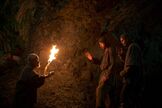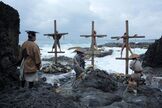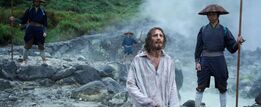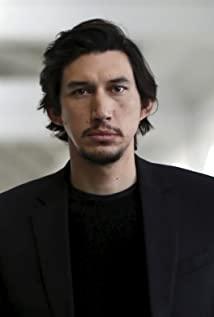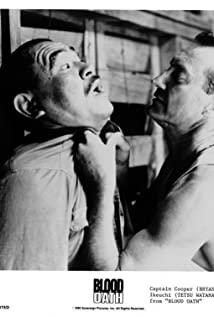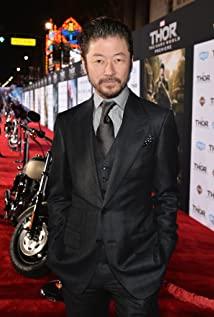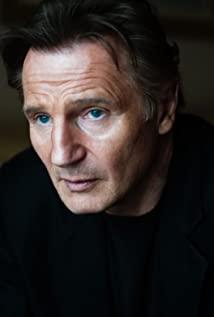Human power is limited, but when people are organized, they have powerful power. Since ancient times, there have been two forms of organization: government and religious groups. The former is called kingship, the latter is called religion. From the very beginning, these two forces have competed against each other and merged with each other, just like the polarities of yin and yang, bringing vitality to human society. When the kingship decays, religion will take advantage of the situation. Not to mention the apocalypse religion, there have been many uprisings in the name of religion in Chinese history. It is said that in just 20 years, the Jesuit Society, which has hundreds of thousands of Christians, is an even more vigorous "Yangjiao". The big names in Japan are very vigilant, for fear that one day they will arouse public anger, and the incidents in Kaga and other places will be repeated. To make an inappropriate analogy, if Japan's ban on religion failed at that time, then the Taiping Heavenly Kingdom might have been staged in Japan first. After all, Japan in the Edo period actually had more suitable soil, and I mean the suffering of the people. We can also see from the movie that those who choose to believe in Christ and abandon God and Buddha are almost all poor farmers, while citizens who live in cities and live more comfortably are not welcome to Catholicism. In fact, this is also very understandable. When you choose to believe in Buddha, but suffer and suffer, you originally believed in reincarnation, thinking that you might be able to live a good life in the next life, but suddenly, a new saying came to you, saying that you are guilty, and as long as you are sincere Repent and go to heaven. If this road does not work, it will definitely change.
What is shown in the movie is that Christians are persecuted, countless believers are brutally killed and still do not change their faith, while the missionaries succumb on the surface, but they understand the true meaning of Jesus even more, their faith is sublimated, and they practice the belief of sharing suffering for the world. But in fact, behind it is a war filled with gunpowder smoke, a war of aggression between civilizations, the Jesuits are trying to make the Japanese believe in Christ, and even make the Japanese speak, or even only speak Portuguese. Even if it is not mentioned in the movie, everyone can realize that this is actually a form of civilization replacement. Just like what they did in Europe and in the Americas, those original civilizations have all been digested, leaving only one by one countries, with the same civilization. Because the Japanese rulers took firm resistance and succeeded, Japan is still a secondary civilization, in contrast, Korea is just a country, and the attributes of the secondary civilization have been exhausted. Although in the Confucian cultural circle, I hate Japan the most. He is like an excellent student who grew up in a violent and cruel family of origin. Although he has some advantages that we should learn, he is inherently annoying. But when the big waves outside the circle really set off, do we have more capable comrades in arms? A strip of water, lips are dead and teeth are cold. Of course, the three-way balance of power is gradually forming among civilizations now, and it is no longer the Middle Ages, especially in the later era of great voyages. It is like the beginning of the game, and it is time to desperately grab "unowned resources". We have missed centuries, for good or for bad.
In many civilizations, religion has been stripped from the center of domination by kingship and has the attributes of seizing power itself. Therefore, kingship took a confrontational attitude towards religions, especially emerging religions, from the beginning. The more famous ones can be seen in the first three hundred years of the birth of Christianity and the rise of Taoism. But soon, Wang Quan discovered that religion was also a very suitable partner. Needless to say, Brahmanism, Zoroastrianism, and Catholicism, Buddhism was also the case later, especially in the Qing Dynasty, the emperor also had the identity of a religious leader. But when the state and religion are unified, it is usually impossible for the common people to live comfortably. For no other reason, the royal power has lost its vigilance and has no will to forge ahead. There is no need to worry anymore that their own tyranny will provoke another kind of organized confrontation. Because two powerful organizations decay together. Speaking of modern times, that is, after the fall of the Soviet Union, the United States no longer fears that someone will follow in the struggle for democracy, and no longer has to be careful to pretend, and even pay attention to the welfare of the people. There is competition, there is progress, this principle is simple and unbreakable. It is a pity that the imperial court is often wrong. He is afraid of the power of religious organizations, for fear that the people will follow the religion and go away, and rebellion will break out, so he will continue to appease the rape and even tilt the policy. Obviously, they should please the people, so that the people can closely surround themselves with so-and-so as their core, but in the end they try to surround themselves with religion. Instead, they watch the fire from the other side. Everyone wants to be lazy, but if you are stupid, you will die.
After talking for a long time, it seems that I am not talking about the movie. Indeed, because I don't think the movie has anything to say about it, Christians will see it in tears, more introspective, and more repentant, but what will most of us Chinese see? I don't know because I can't represent the Chinese people. All I can say is that what I saw was a well-crafted propaganda film. He focused on one point, magnified one point, and sublimated one point. This point is the belief in God. It is totally unthinkable that if Japan's daimyo failed, would the Inquisition spare these "ugly ruling classes"? Oh no, I was wrong, I exposed myself as an atheist, for the Inquisition there was never any ruling class or masses of people, all of them heretics. According to the Buddhist theory that good and evil are rewarded, the sins suffered here today are all due to the evils committed there in the past, so I am probably relieved? There is no good or evil, it is not selfishness.
I would also like to talk about one of the original missions of religions, and almost all religions have this mission, except Islam. That is "an evolutionary experiment of transcendence", Catholic "saint", Mahayana Buddhism "achieving Buddhahood and saving the world", Confucian "sage", Taoist "getting Tao", communist proletarian revolutionaries ( Although Confucianism and Taoism are not religions, some doctrines are simply new religions), etc., are all experiments that make oneself "go against" human nature, or go beyond the ideological category of "human", so as to find a social problem: the solution to the weakness of human nature method, so that there will be no greed, hatred, ignorance, seven sins, etc. in the society.
But for the time being, religion has become a supplementary form of kingship to its social organization, although some religions have melted civilization, and kingship or government has become its puppet.
I am full of despair in this world, not because I am afraid of the huge waves surging outside the circle, but because I cannot see the hope of all beings. Only with the three immortality: the immortality of heaven, the immortality of cause and effect, and the immortality of benevolence and righteousness, come to comfort yourself.
View more about Silence reviews




